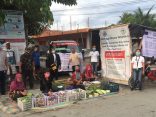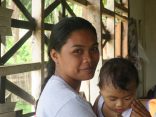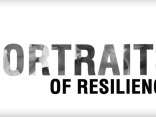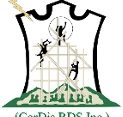By Llane Belle Salmorin
In photo: Twinkle patiently guiding beneficiaries in answering forms for the post-distribution monitoring of shelter assistance
Staying up late at night and waking up early in the morning is not new to me. As a student, I am used to deadlines. That served me well this past “extended” summer. You see, UP just implemented a calendar shift, moving the start of classes to August. I had April until July as vacation from schoolwork. But I chose to look for a job, a job that led me to community work. My first job.
By Llane Belle Salmorin
In photo: Twinkle patiently guiding beneficiaries in answering forms for the post-distribution monitoring of shelter assistance
Staying up late at night and waking up early in the morning is not new to me. As a student, I am used to deadlines. That served me well this past “extended” summer. You see, UP just implemented a calendar shift, moving the start of classes to August. I had April until July as vacation from schoolwork. But I chose to look for a job, a job that led me to community work. My first job.
Jobhunting
Call me Twinkle. I’m the youngest in our family and the only daughter. I’m a BA Psychology major in UP Visayas (Miag-ao campus). Why did I look for a summer job? Simple: I wanted to help with our financial expenses. My father has since left us for a mistress. My brothers who have taken on the role of providing for the family are the ones supporting me through UP. I wanted to prove that I was not a burden, that I can contribute as a partner in the family.
I researched online for jobs. I expected that it would be hard to find a job, given that I am an undergraduate with no prior work experience. But I was lucky. I was informed that a non-governmental organization (NGO) was hiring project assistants for its Typhoon Yolanda emergency response in Panay.
The NGO, Assistance and Cooperation for Community Resilience and Development (ACCORD), scheduled me for a job interview. I did not really know what to expect. They asked how we would handle working with the affected communities and how we worked with different kinds of people. I was unsure whether I aced the interview or would now be blacklisted from all NGOs working in Panay.
Imagine my surprise when the Human Resources Officer called me up and told me to report to work after finishing all my school requirements. I was beyond thrilled. I qualified! Excited and full of positive vibes, I went to the office with my nerves jittery. Everything would be new to me: the people, the office environment, the work culture, and the job itself.
The Real Deal
I was disappointed a little, to be honest. Due to the busy work schedules and the need to immediately and forcefully respond to the beneficiaries’ needs, a full staff orientation was not the priority. I had to make do with what little information they gave me and then rely on my instincts and resourcefulness to make things happen.
But on the other hand, the people I worked with were all nice and approachable, and they were willing to mentor me. All ACCORD staff in Panay lived in a single house that also serves as the office. That helped us bond with each other, as we see each other even on Sundays. Given the enormity of our work, we actually had to work a lot of Sundays, and late into the night on weekdays. They served as my second family.
But what really brought us together was our love for the communities we served. I’ve always been shy and quiet, but when I’m with the people in their barangays, I become something else. They consider me one of them. We share stories and laughs. They try to give us gifts in the form of root crops and vegetables, but protocol dictated that we do not accept them.
I saw how difficult it is to live in the most far-flung barangays. We had to do a lot of walking under the scorching heat of the sun when we conduct general assemblies and beneficiary selection. Sometimes we rode the habal-habal (motorcycle with extended plank attached to carry more passengers), but the bumpiness of the road was terrifying. I really had to try hard not to jump off the vehicle. Cellphone signals hardly reach their areas. Their schools sometimes only had levels up to Grade 3 or 5. I really had a charmed life when I thought about it.
Nothing but grateful
I’m going back to UP this August, with the help of my summer job with ACCORD. I really would have wanted to continue working, both for the chance to serve communities and help my family. But I know that I would be able to do more if I finish my studies first. I will make it even with my family’s help, and I will present my diploma to my mother and my two great brothers.
My biggest learnings in ACCORD? Opening up to others and gratitude for what I have. The communities gave me the cue. They always give us feedback on how we do our jobs. The materials and the money sometimes seem insufficient given the extent of damage Yolanda brought to their homes, but they have been nothing but grateful. They appreciate that we went to their areas despite the difficulties in transportation and logistics, that we remain with them despite the daily challenges in implementation and monitoring.
I am grateful for the chance of a lifetime: to be of service to others. Clearly, the cliché was right: experience is really the best teacher.
ACCORD is an implementing partner of CARE. Its interventions in Panay have been made possible through the support of the European Commission – Humanitarian Aid and Civil Protection department (ECHO), the United Kingdom’s Disasters Emergency Committee (DEC), and the Dutch Cooperating Aid Agencies (SHO).




